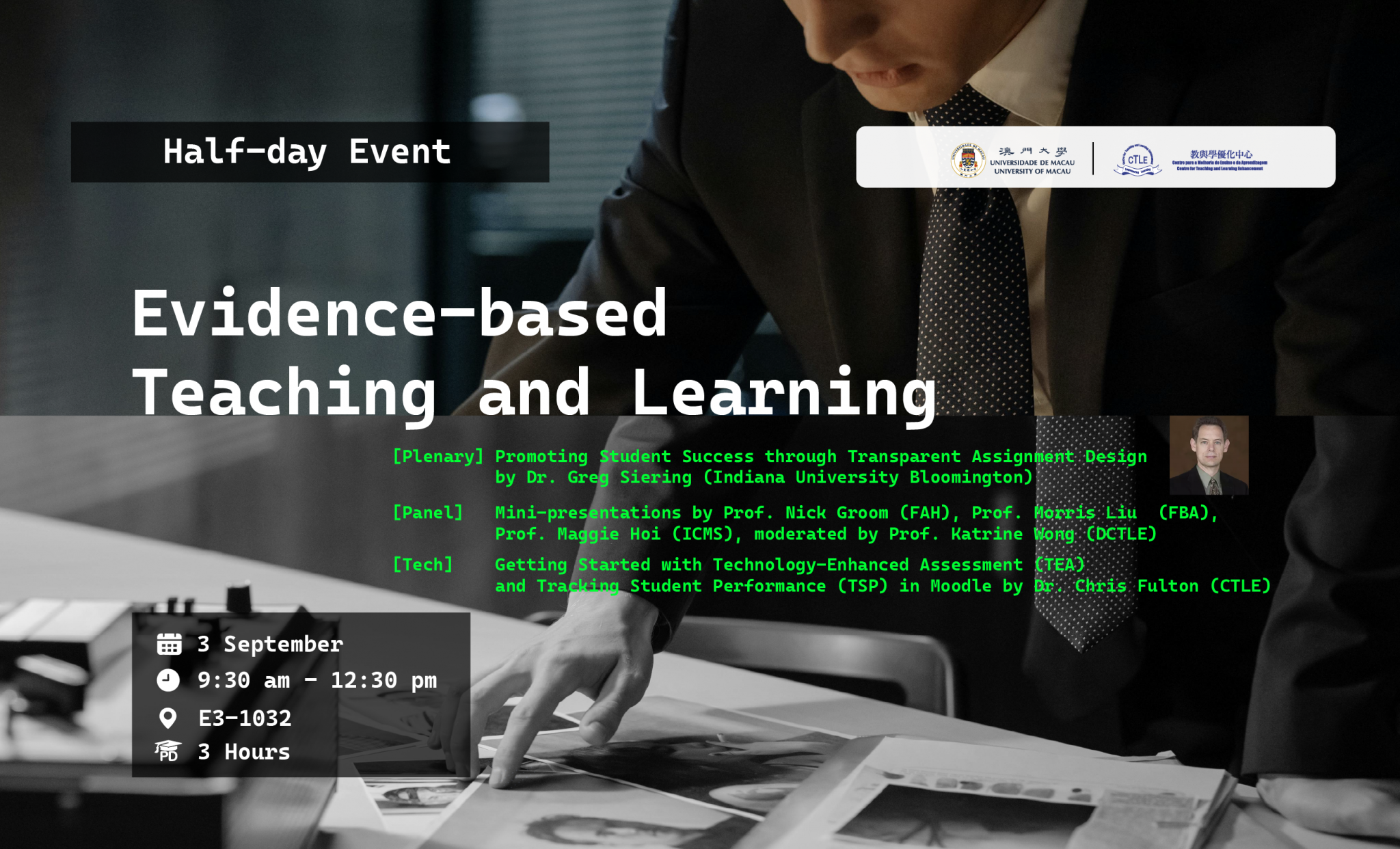Join us for a dynamic faculty development programme featuring Dr. Greg Siering on transparent assignment design using the TILT framework, a panel on effective strategies for assignment, and a hands-on technology session on Moodle tools. Discover practical approaches to support diverse learners and improve assessment effectiveness.
PROGRAMME RUNDOWN
9:30AM – 9:35AM Opening remarks by Prof. Michael King-man Hui (Vice Rector, Academic Affairs)
9:35AM – 11:05AM Plenary Workshop by Dr. Greg Siering (Indiana University Bloomington) *Speaker will present online via Zoom
11:05AM – 11:10AM Break
11:10AM – 11:50AM Faculty Mini-Presentations by Prof. Nick Groom (FAH), Prof. Morris Liu (FBA), Prof. Maggie Hoi (ICMS), moderated by Prof. Katrine Wong (DCTLE)
11:50AM – 12:20PM Technology Session by Dr. Chris Fulton (CTLE)
PLENARY WORKSHOP
Promoting Student Success through Transparent Assignment Design
We spend significant time creating our assignments, so how can we ensure they are designed in ways that set students up for success? One model of assignment design—the Transparency in Learning and Teaching (TILT) framework—is easy to implement and has a strong body of research that demonstrates its benefits for student learning, especially among less academically prepared students. This workshop will introduce the TILT framework, provide you with an opportunity to “TILT” an assignment, and explore the use of Generative AI to help you create transparent assignments. Participants will be asked to bring three copies of an assignment for workshopping.
FACULY MINI-PRESENTATIONS
Effective Strategies in Supporting Diverse Learners
Faculty members will share strategies that have helped support student success throughout an assignment, especially for students with different levels of preparation or learning styles, and found effective. They will also share an example of an assignment designed that successfully connected course content to real-world issues or student interests and its impact on student engagement or student success.
TECHNOLOGY SESSION
Getting Started with Technology-Enhanced Assessment (TEA) and Tracking Student Performance (TSP) in Moodle
The activity completion tools in Moodle can provide students with progress indicators and feedback loops to guide their learning, and offer instructors insights into student learning.
Keynote Speaker

Greg Siering is the founding director of the Center for Innovative Teaching and Learning at Indiana University Bloomington. He has a Ph.D. in English (Composition and Rhetoric), and his teaching background is in first-year writing courses. He is currently teaching in IU’s new first year seminar program, where he emphasizes skills needed for successful transition to university. His work currently focuses on supporting the effective use of teaching assistants in large lecture courses and their associated recitation/discussion sections, and on helping instructors support first-year students in their transition to university. Outside of work, he enjoys baking and playing games with his grandchildren, and he is starting to dabble in amateur astronomy.

